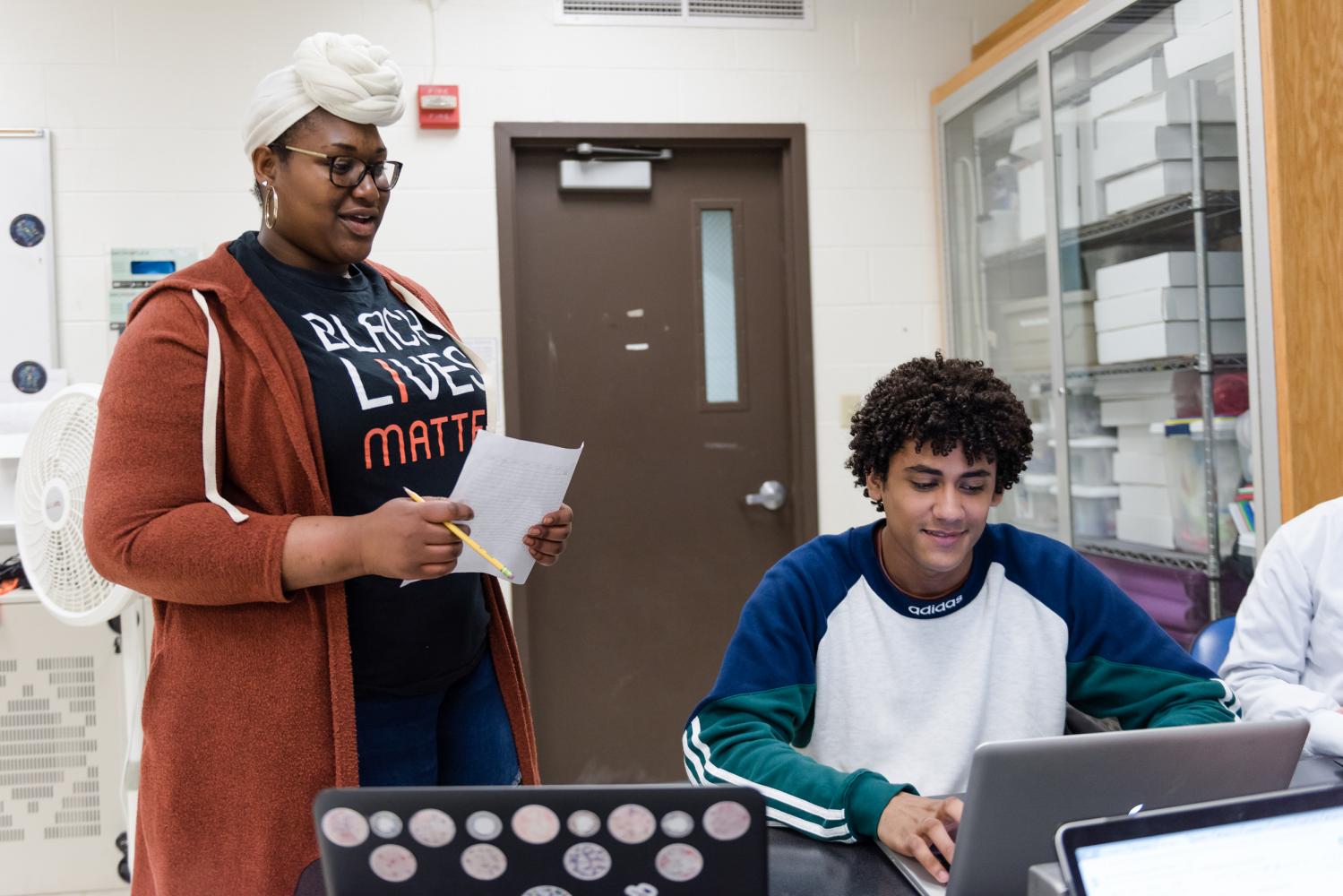The program is supported by the school of Life Sciences, Physics and Astronomy, the College of Applied Science & Technology, Mathematics, Chemistry and Material Sciences and NTID. Currently in its third year, the program was developed by the Science and Mathematics Education Research Collaborative (SMERC) to give students a genuine teaching experience.
LAs develop teaching methods dependent on the diverse group of participating students. They network with RIT faculty to navigate the terrain of teaching and constructive group study.
Many students are more familiar with the role of teaching assistants than with learning assistants, who have more responsibilities than TAs. The primary role of an LA is to mediate discussion-based learning between students in the course. L
That being said, not all LA experiences will be uniform. The roles will typically be determined by the course, faculty mentor and the LA themselves.
According to Ptak, LAs are often assigned more responsibility and therefore more pedagogical freedom than Teaching Assistants (TAs).

“It is very important for faculty to be accountable to the students they teach," said Ptak. "And if students are having bad experiences, they should be able to give a certain level of feedback that actually makes its way into the course. Student evaluations always find their way into substantive changes within the classroom when LAs are involved.”
"The LA program allows us to create a culture in which student feedback, student ideas and student issues take a central focus in the teaching process."
Ptak noted that all mentors reported that students were more open with concerns they had in the course with LAs rather than faculty. The LAs can bring those concerns to the faculty or develop methods to alleviate those concerns themselves. This allows changes to be made on the fly and for the course to be more responsive to student needs.
“The LA program allows us to create a culture in which student feedback, student ideas and student issues take a central focus in the teaching process,” Ptak said.
LA's are increasingly in demand
Ptak recognizes how valuable the program is, but stops short of saying it should be implemented across the entire university.
“The best kind of learning assistant experience is one in which the faculty chooses and wants it, not one that is forced," he said. "If the faculty are looking for ways to revise their class in a way that reduces the amount of work and they want to be more student-centric, the LA program is a resource to them. It should never be something that’s forced on unwilling faculty.”
Vision for the Program
Ptak highlighted the pedagogical transformations that LAs typically go through and the lessons they inculcate into their own learning process..
“If the students walk away from the LA program with one thing, it is that good educational practice is good for students, faculty, and everyone at the institution and hopefully they have an experience that opens up their mind to thinking more about what the classroom is there to do and their space within that classroom,” he said.
Student learning assistants share their thoughts
Student LAs agreed that their participation in the program has contributed to their own growth as much as to the students they worked with.
Christman has been an LA ever since. The experience in the beginning involved overcoming personal obstacles that the program allowed her to confront.
“I was nervous. I didn’t really understand the balance when some of the kids I was LA for were also my friends. The students didn’t take me seriously because I was constantly going to my faculty mentor to solve problems,” she recalled.
Christman now now holds review sessions as an LA that have up to 40 students participating.
Alana Moraes, a third year Civil Engineering Technology major, is another learning assistant in the engineering department. She said her natural inclination to help her peers got her a recommendation from a professor to become an LA.
“My favorite thing about being an LA is probably when a student’s eyes light up when they’ve figured out something they’ve been having trouble with," she said.
Christman shared this sentiment. “The best part about being an LA is witnessing that ‘a-ha’ moment in a student. When you don’t really know how you’ve explained something differently, but it clicked for them and they’ve learned something,” she said.








